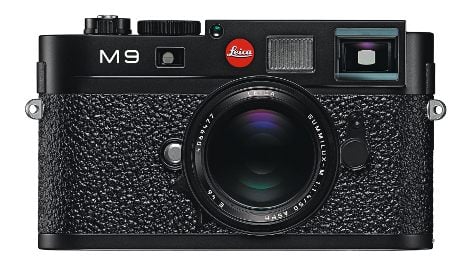From luxury cars to precision machinery, “Made in Germany” still means quality craftsmanship around the world. But the Teutonic attention to detail goes far beyond engineering. This series will feature a diverse array of products from both well-known German brands and less famous firms. But no matter big or small, all of them are focused on being the best at what they do.
In 1905, Oskar Barnack, an optical engineer at the Leitz microscope manufacturing company in Wetzlar, Hesse, had an idea. An avid amateur photographer, Barnack suffered from asthma that made toting the heavy photographic equipment available at the time difficult. The idea? A completely new form of technology allowing the negatives to be far smaller and the photographs enlarged later. As a result, it would be possible to develop a small, hand-held, and totally portable camera. Barnack started working on his groundbreaking project, and by 1914 he had created the first Leica – a contraction of “Leitz” and “Camera.” The outbreak of the First World War delayed the development process, but a model went into production in 1923 and was on the market by 1925.
In the following years, the camera, which was steadily improved, changed the shape of photojournalism. This “extension of the eye” allowed photographers on the ground an entirely new level of access to current events. During the Second World War, the camera played another kind of role: Mounted in German airplanes, the small camera was a tool for military reconnaissance.
After the war, the company continued to thrive, remaining at the forefront of the world’s camera makers. Today, the company, which also makes hunting lenses and binoculars for nature-watching, has 1,058 employees worldwide and annual revenue, at last count, of just under €134 million. Now headquartered not far from its original birthplace in the Hessian city of Solms, Leica lenses are still widely considered to be among the best in the world.
The company is the only manufacturer of cameras, sports optics products and projectors whose R&D, design and production are located in Germany. A second production site in Portugal is responsible for additional manufacturing, but all Leica lenses are made entirely in Solms. Much of the work, from polishing lenses to assembly, is done by hand.
“We are committed to picture results and will work to make them every little bit better as we move along,” said Johannes Fischer, the firm’s communication’s director. “One example: we just relaunched one of our most popular lenses of the M system….It is one of the standard lenses, and as we were able to develop its capacities for short distances, we did.”
With its focus on high-quality production and user-friendly design, Leica products are known for their simplicity and innovation. Certainly, the future looks promising for the company, which recently celebrated its 100th birthday.



 Please whitelist us to continue reading.
Please whitelist us to continue reading.